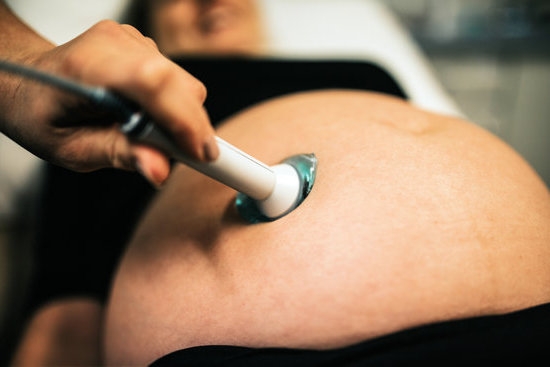Pregnancy tests are often seen as a reliable way to determine whether or not someone is expecting a child. However, the question “can pregnancy tests be wrong?” lingers in the minds of many individuals who may experience uncertainty after receiving unexpected results. Understanding the intricacies of how pregnancy tests work and the factors that can influence their accuracy is crucial in deciphering these potentially misleading outcomes.
In today’s society, where timely and accurate information is highly valued, pregnancy tests play a significant role in providing individuals with vital insights into their reproductive health. The anticipation and anxiety surrounding the results of these tests are unsurprisingly high, given the life-altering implications that they carry. Despite the widespread belief in the reliability of pregnancy tests, there exists a possibility for discrepancies to arise, leading to questions about their precision.
The science behind pregnancy tests lies in their ability to detect specific hormones, such as human chorionic gonadotropin (hCG), which are produced by the placenta during early pregnancy. While modern advancements have greatly improved their accuracy, variations in individual physiology and external factors can sometimes lead to erroneous results.
As we delve deeper into the workings of pregnancy tests, it becomes evident that understanding both their limitations and potential inaccuracies is essential for making informed decisions regarding one’s reproductive health.
How Pregnancy Tests Work
Pregnancy tests work by detecting the hormone human chorionic gonadotropin (hCG) in a woman’s urine or blood. This hormone is produced by the placenta shortly after a fertilized egg attaches to the uterine lining. The presence of hCG in a woman’s body is an early indication of pregnancy and is what pregnancy tests are designed to detect. The accuracy of a pregnancy test largely depends on its sensitivity to hCG levels.
Most home pregnancy tests claim to be over 99% accurate when used correctly on the first day of a missed period. However, there are instances where pregnancy tests can be wrong and provide false results. One common reason for false negative results is testing too early before there is enough hCG in the body to be detected. It is recommended to wait at least a week after a missed period before taking a pregnancy test for the most accurate result.
On the other hand, false positive results from a pregnancy test are less common but can still occur. Certain medications, medical conditions, or even an expired or faulty test kit can lead to inaccurate positive readings. It is essential to follow up with another test or consult with a healthcare provider if there are doubts about the initial result obtained from a home pregnancy test.
| Reasons for Incorrect Test Results | Significance |
|---|---|
| Testing too early | Can lead to false negative results |
| Expired or faulty test kit | Potential cause for false positive results |
False Negative Results
Pregnancy tests are often seen as reliable indicators of whether or not a woman is pregnant. However, there are instances where these tests can provide inaccurate results, leading to confusion and uncertainty. One common occurrence that raises the question, “Can pregnancy tests be wrong?” is when a test shows a false negative result. This means that even though a woman may actually be pregnant, the test indicates otherwise.
Several factors can contribute to a false negative result on a pregnancy test. One of the main reasons is testing too early before there is enough hCG (human chorionic gonadotropin) hormone in the urine for detection. It is recommended to wait until at least a week after missing your period to ensure more accurate results.
Additionally, using an expired or faulty test kit can also lead to misleading results. It’s crucial to check the expiration date and follow the instructions carefully when taking the test.
To prevent false negatives, women should consider certain factors that can affect the accuracy of their pregnancy test results. These include drinking excessive amounts of fluids before testing, which can dilute the concentration of hCG in urine.
It’s also important to use first-morning urine for testing as it is more concentrated with hCG hormone levels, increasing the likelihood of obtaining an accurate result. In cases where there is still doubt regarding the initial negative result, it is advisable to retake the test after a few days or consult with a healthcare provider for further evaluation.
False Positive Results
When facing a positive result on a pregnancy test when not actually pregnant, it can be puzzling and stressful. However, false positive results on pregnancy tests do occur, albeit rarely. One potential cause of a false positive is an early miscarriage or chemical pregnancy. In these cases, the body may still produce the hormone hCG (human chorionic gonadotropin) that is detected by pregnancy tests even though the pregnancy is no longer viable.
Another reason for false positive results can be due to certain medications that contain hCG or other substances that mimic the hormone. Additionally, medical conditions such as ovarian cysts, certain types of cancer, or hormonal imbalances can also lead to false positive results on pregnancy tests. It is essential to consider these factors when trying to understand why a pregnancy test may show a positive result incorrectly.
Moreover, faulty or expired pregnancy test kits can also contribute to false positive results. It is crucial to check the expiration date of the test kit and follow the instructions carefully to minimize any errors in interpreting the results. Understanding these possible causes of false positive results can help individuals navigate their emotions and seek appropriate medical advice if needed.
| Reasons for False Positive Results | Description |
|---|---|
| Early Miscarriage or Chemical Pregnancy | In some cases, hCG levels are present despite not being pregnant |
| Medications or Medical Conditions | Certain medications containing hCG-like substances or health conditions can trigger false positives |
| Faulty Test Kits | Expired or defective test kits might give incorrect positive readings |
Factors Affecting Accuracy
Can Pregnancy Tests Be Wrong
and play a significant role in the reliability of the test results.
Can Impact the Accuracy of a Pregnancy Test
is taking the test too early. Pregnancy tests detect the presence of hCG (human chorionic gonadotropin) hormone in the urine, which is only produced when a fertilized egg implants in the uterus. If a test is taken too soon after conception, there may not be enough hCG present in the body to be detected by the test, leading to a false negative result.
Can Affect the Reliability of a Pregnancy Test
is improper usage of the test kit. It is essential to follow the instructions provided with the pregnancy test carefully to ensure accurate results. Using expired or faulty test kits, not using first-morning urine (which has higher concentrations of hCG), or not waiting for the recommended time frame before reading the results can all lead to incorrect outcomes.
Can Influence
pregnancy test accuracy is crucial for individuals seeking reliable information about their pregnancy status.
When to Retake a Pregnancy Test
Can Be Instances Where Pregnancy Tests Can Be Wrong
, leading to confusion and uncertainty about one’s reproductive status.
Guidelines for Retaking a Pregnancy Test
If you have taken a pregnancy test and received a negative result but still suspect you may be pregnant due to missed periods or other symptoms, it is advisable to wait a few days before retaking the test. Hormone levels need time to rise high enough for detection by the test. Similarly, if you initially receive a positive result, it is recommended to take another test after a few days to confirm the results and rule out any false positives.
Timing Matters
Can Affect Its Accuracy
Additionally, it is important not to wait too long before reading the results, as evaporation lines may appear after a prolonged period, leading to potential misinterpretations.
Are Instances Where They May Give Inaccurate Results
, so it’s always wise to consult with healthcare experts for further evaluation and support.
Other Types of Pregnancy Tests
When it comes to taking a pregnancy test, there are various options available on the market. Each type of test has its own set of advantages and differences in accuracy. Here are some of the most common types of pregnancy tests:
- Urine Tests: These are the most widely used type of pregnancy test and can be easily purchased over-the-counter at pharmacies. They detect the hormone human chorionic gonadotropin (hCG) in urine, which is produced during pregnancy.
- Blood Tests: Blood tests for pregnancy are typically done at a healthcare provider’s office and can determine very early stages of pregnancy. These tests measure the level of hCG in the blood, providing a more accurate result compared to urine tests.
- Digital Tests: Digital pregnancy tests work similarly to traditional urine tests but provide a clear result in words (such as “pregnant” or “not pregnant”) instead of lines. Some women find these easier to read and understand.
While all these types of tests serve the same purpose, it’s important to note that there may be variations in their accuracy levels. Blood tests are considered the most accurate, followed by digital tests and then traditional urine tests. Additionally, it’s essential to carefully follow the instructions provided with the test kit to ensure accurate results.
Regardless of the type of pregnancy test you choose to use, it’s crucial to remember that false results can still occur. Factors such as taking the test too early or not following directions correctly can impact the outcome. In cases where there is uncertainty or conflicting results, consulting a healthcare provider is always recommended for further evaluation and guidance on next steps.
Seeking Professional Help
While home pregnancy tests are generally reliable and accurate, there are instances where they can provide conflicting or unclear results. This raises the question: “Can pregnancy tests be wrong?” The truth is that false negative and false positive results do occur, and it is essential to know when it is necessary to seek professional help in such situations.
If you have taken multiple pregnancy tests with varying results, it may be time to consult a healthcare provider. They can conduct a more sensitive test, such as a blood test, which can detect lower levels of the pregnancy hormone hCG and provide a clearer answer. Additionally, a healthcare provider can perform an ultrasound to confirm whether or not you are pregnant, especially if there are symptoms or concerns that need further investigation.
Seeking professional help becomes crucial when you experience symptoms of pregnancy but continue to receive negative test results. In some cases, these symptoms could indicate an underlying health issue that needs medical attention. A healthcare provider can conduct thorough examinations and recommend appropriate treatment if necessary. It’s always better to err on the side of caution and address any uncertainty regarding your pregnancy status promptly with the guidance of a medical professional.
Frequently Asked Questions
How Common Are False Negative Pregnancy Tests?
False negative pregnancy tests are relatively common, especially if taken too early or not following the instructions properly. Factors like diluted urine, expired tests, or certain medications can also contribute to false results.
Can I Be Pregnant and Still Test Negative?
It is possible to be pregnant and still test negative, particularly if the test is taken too early before there is enough hCG (pregnancy hormone) in the urine to be detected. In some cases, a faulty test or improper usage can also lead to inaccurate results.
How Do You Know if a Pregnancy Test Is Wrong?
To determine if a pregnancy test is wrong, it is crucial to follow the instructions carefully and ensure that the test isn’t expired. If there is any doubt about the result, it’s recommended to take another test a few days later or consult a healthcare provider for further evaluation.

Welcome to my fertility blog. This is a space where I will be sharing my experiences as I navigate through the world of fertility treatments, as well as provide information and resources about fertility and pregnancy.





